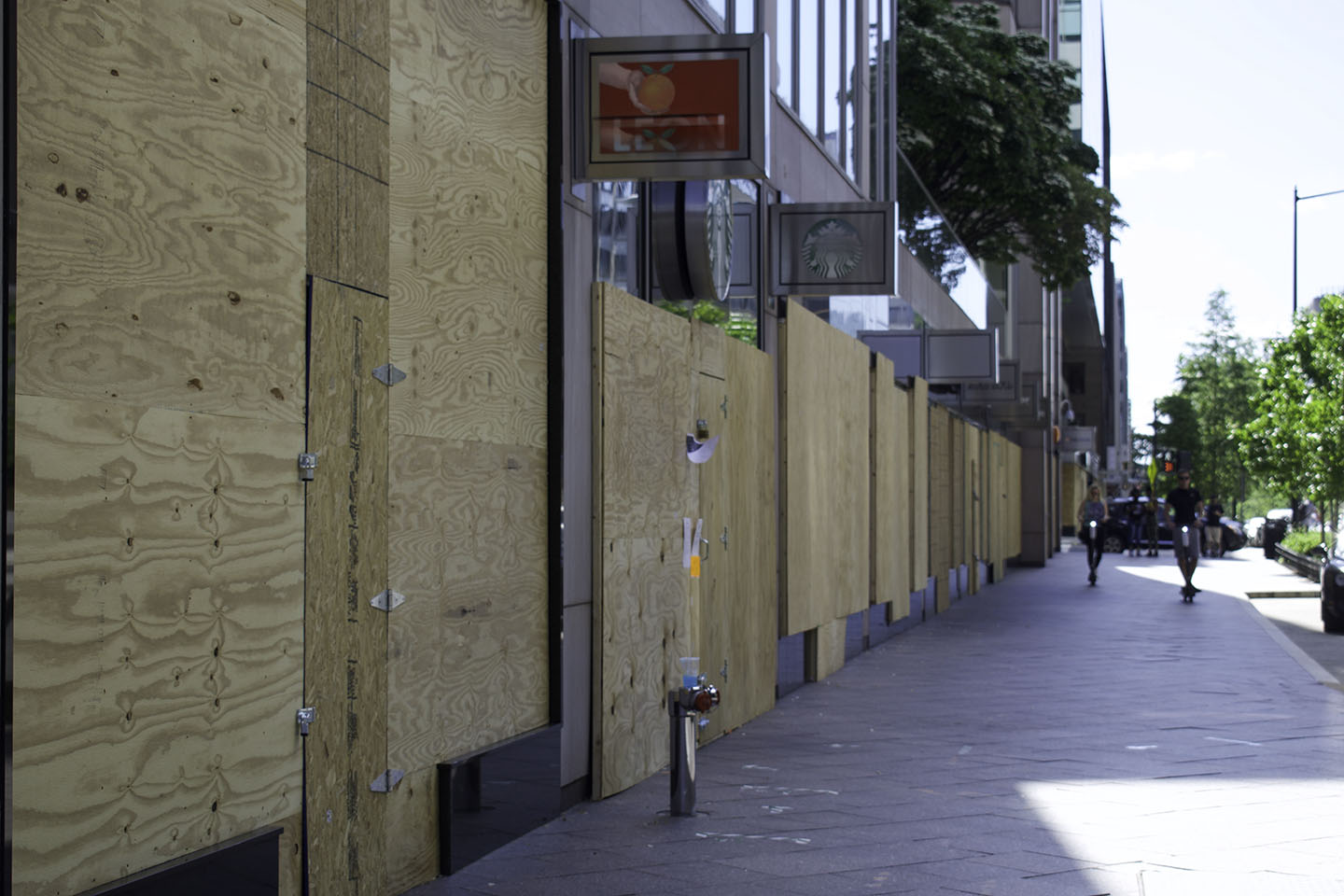
by Ian Hamilton
COVID-19, has driven humanity into an extended, global crisis. With an uncommon rapidity and severity, what started as a localized public health crisis has grown into a global pandemic, threatening lives, economies and social cohesion – including education at all levels, collective religious worship and any kind of social gathering. Prosperity, in its broadest definition, hangs in the balance.
Like many others, I find myself experiencing a heightened level of anxiety and worry: will my older friends and family remain healthy? How long will working remotely be sustainable? How long will the social cohesion enjoyed by my faith community endure? How long will I balance work and homeschooling? Elements of society previously taken as certainties are no longer certain.
However, I find that the root of my anxiety and worry lies quite a bit deeper than just this current pandemic. When I consider both the spread and disproportionate impact of this novel virus, the economic upheaval, the travel restrictions, the distrust in societal institutions and the undermining of social structures, I cannot help but think that this a premonition of the parallel challenges that will result from the damage we are daily meting out to the climate.
The Intergovernmental Panel on Climate Change (IPCC) as well as the U.S. Fourth National Climate Assessment outline, in detail, the expected impacts of climate change over the years to come. Further, thinkers and commentators have started to compare and contrast COVID-19 and climate change, including the MIT Sloan Review, Bloomberg Green and Scientific American.
To take these pieces in distillation suggests that humanity is at a point were we must begin to ask challenging questions of ourselves in terms of the systems we have thus far built – and their embedded inequality – as well as the future world we want and how we can best ensure that all members of the human race are empowered to flourish. There are clear similarities in how the world must respond to the immediate challenge of COVID-19, as well as the on-going existential threat of climate change. Neither can be overcome in isolation but will rather require the involvement of a broad array of societal actors. Not least among these actors will be religious and faith organizations.
On an instrumental level, faith groups can potentially mobilize billions of adherents to work toward a specific goal or objective – be that social distancing or reducing carbon emissions. On a non-instrumental level, faith organizations can contribute vital moral and spiritual principles at moments when they may be lacking or ignored – principals such as hope, trust and generosity. Of course, this is in addition to social cohesion that religion has historically fostered and the processes of inner transformation that often form the core of religious belief.
Thinking more specifically, I draw hope and reassurance from a concept enshrined in the teachings of the Baha’i Faith, that of crisis and victory. This dialectic of crisis and victory teaches that progress is realized by maintaining consistency, unity, and steadfastness in the face of setbacks and crises. Like a ship in a storm, one must maintain sufficient forward momentum and plow ahead into the waves to avoid being swamped.
With this dialectic in mind, there are lessons that can be drawn from our response to the COVID-19 pandemic which may inform our evolving response to climate change. For instance, if we begin to consider the shortcomings that have been highlighted by the current crisis, it could be argued that had the World Health Organization been empowered to manage and allocate resources as well as disseminate treatment information and impose travel restrictions, it is conceivable that this current outbreak may have been more quickly contained and more effectively managed. By acknowledging the deficits that have led to components of this current crisis we can better improve our global organizations to more effectively respond to future crises. Similarly, a significant contribution to the crusade against climate change could be made by establishing a global environmental agency tasked with enacting binding, international action on climate change.
While this example is extremely cursory, it speaks to a deeper truth that both climate change and COVID-19 are making starkly and unignorably clear: no longer can we conceive of the world as a host of disconnected nation states. We live in an age of global challenges which require global responses. A virus does not respect national borders, climate change will not target the country that has emitted the most greenhouse gases. The sooner we ignore the supposed significance of the passport we carry and rather embrace the reality that we share an interconnected, interdependent home the better. Increasingly, we need to consider establishing institutions of global governance that are empowered, equipped, and trusted to answer the global challenges that confront humanity.
The prospect of such global institutions, let alone the reality, may cause significant levels of worry and disquiet. To establish the conditions whereby global governing institutions can support, rather than undermine national sovereignty, will require a collective exploration of how such institutions can become champions of justice, equity, fairness, and prosperity while avoiding the pitfalls of opposition, partisanship, and oppression. In short, humanity will need to grapple with how to build moral, principle-based institutions.
We must not lose sight of the fact that humanity has been hurled into a collective learning moment, arguably at a time when it was deeply needed. In the same way that a grazed knee is an opportunity for me to remind my daughter of the need to tie her shoelaces, we now have the opportunity to imagine the post-crisis world we need and to enter into a far reaching conversation about the environmental, governmental and economic systems that will enable us to flourish.


